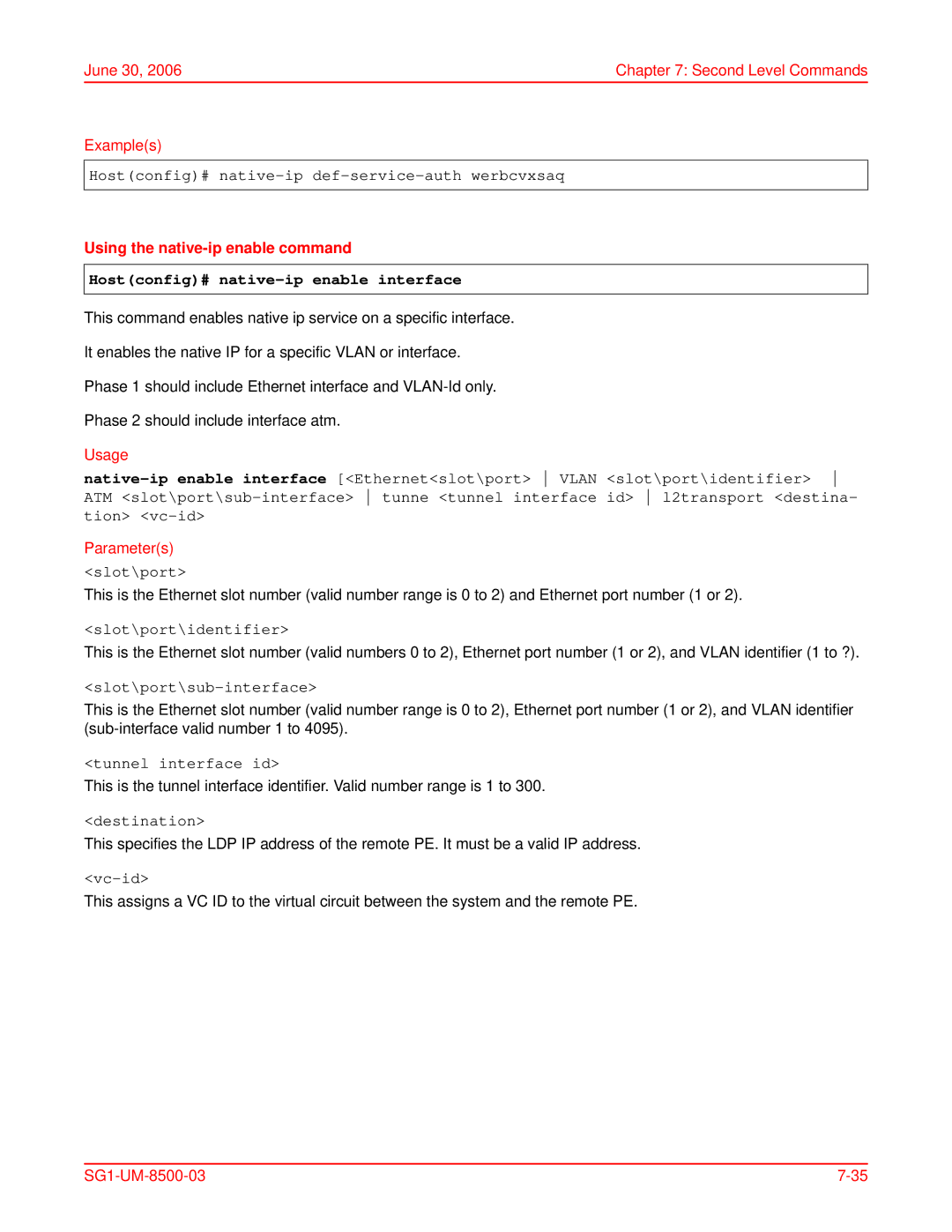
June 30, 2006 | Chapter 7: Second Level Commands |
Example(s)
Host(config)#
Using the native-ip enable command
Host(config)# native-ip enable interface
This command enables native ip service on a specific interface.
It enables the native IP for a specific VLAN or interface.
Phase 1 should include Ethernet interface and
Phase 2 should include interface atm.
Usage
Parameter(s)
<slot\port>
This is the Ethernet slot number (valid number range is 0 to 2) and Ethernet port number (1 or 2).
<slot\port\identifier>
This is the Ethernet slot number (valid numbers 0 to 2), Ethernet port number (1 or 2), and VLAN identifier (1 to ?).
<slot\port\sub-interface>
This is the Ethernet slot number (valid number range is 0 to 2), Ethernet port number (1 or 2), and VLAN identifier
<tunnel interface id>
This is the tunnel interface identifier. Valid number range is 1 to 300.
<destination>
This specifies the LDP IP address of the remote PE. It must be a valid IP address.
<vc-id>
This assigns a VC ID to the virtual circuit between the system and the remote PE.
|
